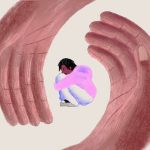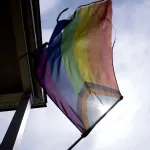In 2020, the Supreme Court found that gay and transgender workers are protected from workplace discrimination in the landmark case Bostock v. Clayton County. Despite those federal protections, LGBTQ+ people across the country — especially transgender and nonbinary people — continue to face rampant discrimination at work and don’t feel safe being out, according to research from the Williams Institute at the University of California, Los Angeles School of Law.
In a 2023 study of 1,902 LGBTQ+ adults in the workforce, released in August, 17 percent said they had experienced discrimination or harassment on the job in the past year. Trans and nonbinary employees were more than twice as likely as cisgender queer employees to face discrimination and harassment: Twenty-two percent of trans and nonbinary people experienced discrimination in the past year, and 26 percent experienced harassment.
“You would hope things have gotten better,” said Brad Sears, founding executive director of the Williams Institute and coauthor of the report.
Sears believes the high rate of recent discrimination is an indication that change has been slow after Bostock, even after the Biden administration implemented additional nondiscrimination policies. Shortly after Biden was inaugurated in 2021, he issued an executive order based on Bostock that mandated the protection of gay and transgender Americans in the workplace, as well as in schools and doctor’s offices. And as of this spring, extra protections were put in place to guard against employers who consistently misgender employees or deny them access to sex-segregated spaces.
Still, the study found that many LGBTQ+ Americans are not out in the workplace to avoid facing discrimination and harassment. Nearly half of LGBTQ+ employees said that they are not open about their identity to their current supervisor, and one-fifth are not out to any of their coworkers. Staying in the closet actually did protect them: LGBTQ+ employees who were out to at least a few coworkers, or just their supervisor, were three times as likely to report discrimination as employees who were not out.
“A lot of people, even if they are out, they’re kind of downplaying their identities in the workplace,” Sears said. “Maybe they use a different voice or different mannerisms at work, or they don’t dress exactly how they would otherwise dress when they’re not at work, or they use a bathroom that they would prefer not to be using at work.”
To avoid discrimination, transgender and nonbinary people are significantly more likely to hide their identities than cisgender queer people. In a new breakout analysis of the Williams Institute’s survey, the experiences of nonbinary people are found to be especially fraught.
Nonbinary people in the study described being ostracized and subjected to violence, harassment or threats at work due to their physical appearance either not being “feminine” enough or “masculine” enough. Their gender expression made them a target and was used as a justification for their treatment by their bosses, coworkers and customers. Frequently, nonbinary people said they were passed over for raises and promotions, called slurs, and forced to work alone.
The nonbinary people surveyed were largely young, urban, and racially and ethnically diverse. To the survey authors, such data is a call for employers to take action — especially If they want to retain young employees.
About 87 percent of nonbinary adults in the workforce are under 35 years old, compared with 71 percent of transgender adults and 51 percent of cisgender queer adults, according to the study. That research aligns with other findings from KFF that Americans under 35 are more likely to identify as nonbinary than older Americans, and research from the Pew Research Center that found adults under 30 are more likely than older adults to be out as trans or nonbinary.
About 3 in 5 nonbinary people have experienced discrimination or harassment at work at some point in their lives, like being fired, not hired, not promoted, or verbally, sexually or physically harassed.
About 1 in 5 nonbinary people reported physical harassment at work because of their sexual orientation or gender identity, with some survey respondents reporting being “assaulted,” “attacked” and “strangled.”
For some, unfair treatment looked like having their hours reduced, being isolated from other employees or customers, or being excluded from company events or socializing.
“Oftentimes, I was passed up for a promotion because I wasn’t ‘manly’ enough, and they doubted my ability to lead a team,” a Latinx nonbinary person from California said in the survey. A Latinx nonbinary participant from Colorado shared: “A co-worker strangled me at a counter and said he was trying to ‘give a girl a massage.’” In Connecticut, a Black nonbinary person said they heard their manager talking “disparagingly” about them to the rest of their bosses because of their gender expression.
One in 4 nonbinary employees said they are currently experiencing adverse treatment at their job because of their LGBTQ+ identity. For many nonbinary people, the worst experiences of discrimination and harassment that they face at work are linked to their multiple marginalized identities. In particular, they were targeted for their disability or being bisexual in addition to being nonbinary.
This research shows that company-level policies, as well as state and federal nondiscrimination regulations, need to be specific so that they protect nonbinary employees, Sears said.
The Williams Institute plans to release more breakout analyses from its survey, including reports on the experiences of transgender, Black, Latinx and Asian-American employees. Breaking down the unique experiences of each demographic is key to understanding and addressing the issues that they’re facing at work, Sears said — for example, nonbinary people face rigid and gendered expectations at work, while bisexual women face high rates of sexual harassment.
“LGBTQ+ people are not monolithic. They’re different, they have intersecting identities … and those are leading to differences that are important in the workplace,” he said.





